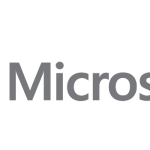LEARNING PATH 1
Ingest data with Microsoft Fabric
- Module 1: Ingest Data with Dataflows Gen2 in Microsoft Fabric
- Module 2: Ingest data with Spark and Microsoft Fabric notebooks
- Module 3: Use Data Factory pipelines in Microsoft Fabric
LEARNING PATH 2
Implement a Lakehouse with Microsoft Fabric
- Module 1: Introduction to end-to-end analytics using Microsoft Fabric
- Module 2: Get started with lakehouses in Microsoft Fabric
- Module 3: Use Apache Spark in Microsoft Fabric
- Module 4: Work with Delta Lake tables in Microsoft Fabric
- Module 5: Ingest Data with Dataflows Gen2 in Microsoft Fabric
- Module 6: Use Data Factory pipelines in Microsoft Fabric
- Module 7: Organize a Fabric lakehouse using medallion architecture design
LEARNING PATH 3
Implement a data warehouse with Microsoft Fabric
- Module 1: Get started with data warehouses in Microsoft Fabric
- Module 2: Load data into a Microsoft Fabric data warehouse
- Module 3: Query a data warehouse in Microsoft Fabric
- Module 4: Monitor a Microsoft Fabric data warehouse
LEARNING PATH 4
Work with semantic models in Microsoft Fabric
- Module 1: Understand scalability in Power BI
- Module 2: Create Power BI model relationships
- Module 3: Use tools to optimize Power BI performance
- Module 4: Enforce Power BI model security
LEARNING PATH 5
Design and build tabular models
- Module 1: Create Power BI model relationships
- Module 2: Use DAX time intelligence functions in Power BI Desktop models
- Module 3: Create calculation groups
- Module 4: Enforce Power BI model security
- Module 5: Use tools to optimize Power BI performance
LEARNING PATH 6
Manage the analytics development lifecycle
- Module 1: Design a Power BI application lifecycle management strategy
- Module 2: Create and manage a Power BI deployment pipeline
- Module 3: Create and manage Power BI assets











